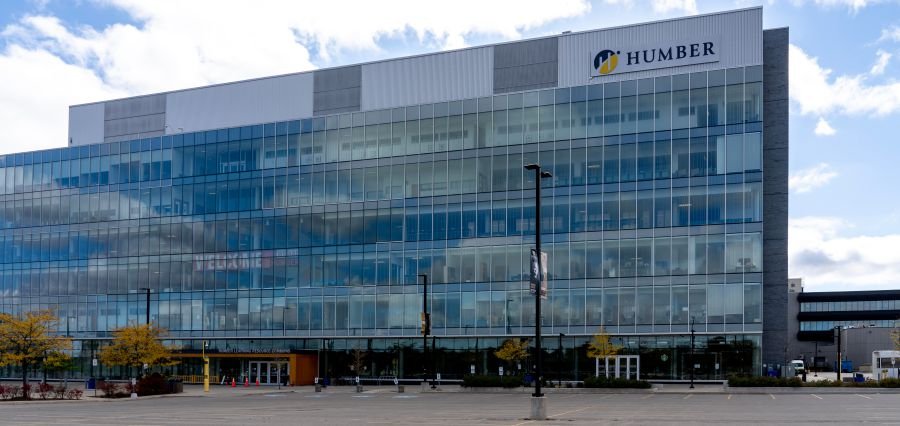In a rather innovative adaptation to online collaboration, Humber Polytechnic and UCL University College in Denmark took it literally that the virtual global learning partnership means turning it into reality, with a group of Danish students actually spending a week in Canada as part of a three-week hybrid project. It’s part of the ongoing Collaborative Online International Learning (COIL) program run by the Faculty of Social and Community Services at Humber, partnering with UCL every semester on virtual exchanges.
COIL enables Humber students to collaborate with international partners on shared learning that broadens their skills in digital fluency, intercultural communication, and teamwork. This fall, Humber students in its Bachelor of Social Science-Addictions and Mental Health and Bachelor of Community Development programs were matched with their counterparts from Denmark studying Social Education and Social Work. The week featured a range of hands-on learning experiences, including visits to local community organizations like the Daily Bread Food Bank, the Gatehouse, and LAMP Community Health Centre.
Through the partnership, student groups developed an imaginary case study individual with various social issues, such as addictions, guardianship, inequality, and immigration. They designed an interdisciplinary intervention plan and presented it through various formats of video productions.
Humber students Amanda Boyton and Lily Shulman worked in collaboration with UCL students Caroline Jorgensen and Emma Schneider in this project. She enjoyed the in-person aspect of the COIL experience, she added. Boyton noted discovering new methodologies applied in community development, and Jørgensen appreciated the difference that deeper comparisons between Canadian and Danish approaches to social support entail.
She opined that she would have always loved to have been in Canada and never got the opportunity; this presentation offered herself an opportunity to understand which resources were available in this country. Shulman enjoyed social contact- capital in collaboration, and field visits were really enlightening.
This shows the strength of blended learning-a fruitful merge of the in vivo and virtual interactions to enrich global learning opportunities for students.









